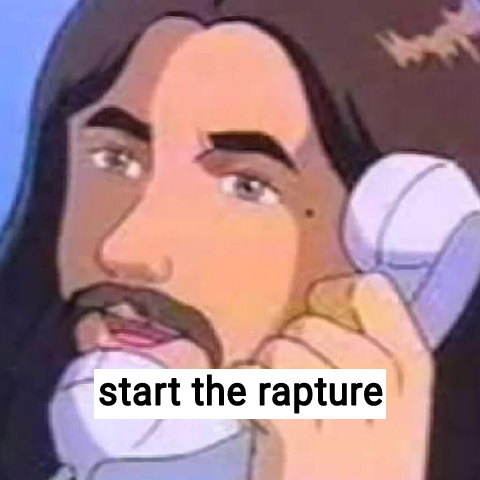You know like when you're stroking a cat and it suddenly decides it doesn't want to be stroked anymore and it scratches you? How do we harvest the revolutionary potential of that?
The Peoples History of the Civil War by David Williams. Really good read, although it’s hard to get through because it’s so infuriating. The southern planter class forced the election to go the secessionist way, just straight brown shirt violence and coercion, and then spent the whole fucking war selling as much cotton to the north as they could while refusing to grow food for their own fucking soldiers. Union capitalists were selling literal garbage at premium prices to their army. Fun fact, the term “shoddy” was actually the name of a type of wool that was so bad it would fall apart after the slightest wear, and was so common in the union army that anything poorly made came to be known as shoddy.
On a nicer note, women started getting into nursing at this time, over the complaints of men physicians, and one in particular, Mary Ann “Mother” Bickerdyke was so strong willed and so beloved that when a male doctor complained about her to General Sherman he said “If it was her I can’t help you, she outranks me.” What a fucking boss.
Union capitalists were selling literal garbage at premium prices to their army. Fun fact, the term “shoddy” was actually the name of a type of wool that was so bad it would fall apart after the slightest wear, and was so common in the union army that anything poorly made came to be known as shoddy.
Some things never change. The amount of garbage soldiers are fed as a form of war profiteering is kinda hilarious. Remember in 2002-2006 soldiers were basically riding around in humvees, the equivalent of a can of sardines with wheels.
Going back and rereading The Origins of the Family, Private Property and the State since I never actually finished it.
Also reading How to Blow Up a Pipeline for the book club, the last discussion post for it will be up tomorrow and then we'll probably do a vote for the September pick in the middle of next week.
Have you settled on the titles for the poll? I just wanted to throw out the idea of including some second-most popular choices from closer polls from earlier months, as they might have been some of the most desired titles on the site but just up against a superstar like Debt or something.
I remember there was a month where there were a ton of killer titles (I think it was Vijay Prishad's Washington Bullets, Andreas Malm's Fossil Capital, Walter Rodney's How Europe Underdeveloped Africa I think, maybe also David Harvey's Brief History of Neoliberalism?) and being bummed that no matter which book won we'd foreclose the option of reading any of the other ones.
We've has some ideas but not settled on any yet, we were going to ask for suggestions in the post tomorrow.
Since we restarted the book club again this month our focus for the first few votes was on books that were short, relevant, easy to read, and that have more of a gloomer/"this is how we can win" kind of outlook and that way hopefully more people would join in with the read since the participation really waned off when we were doing it before. I think it seems to have worked so far because there's definitely been more engagement and some new folks using Perusall, although that might just be because its Malm and the book has a cool title, idk. I think we're going to stick with these kinds of books for the time being, then we'll see how it goes and maybe look at books that are a little more in-depth if there's an appetite for it.
We're always open to suggestions though. They won't always get in the next vote but we keep them in mind for further down the line. And books in the vote that don't win don't get discounted, we still pick those too. Like Fossil Capital, we thought of having that for this month but settled on HTBUAP instead, it was obviously a better fit for our criteria.
Are there any you'd like to recommend?
Are there any you’d like to recommend?
Honestly I was the one pushing for Malm last month, I'm not trying to only get what I want to read on the list more just suggesting a broad idea of not discounting books forever that didn't win a particular month's vote, they might win the next one if they had some momentum.
That being said, with the incoherent takes on sex work on this site I think Playing the Whore by Melissa Gira Grant wouldn't be a terrible idea.
Just starting Stone Butch Blues by :leslie-shining: because I need more queerness in my life
I'm reading the last book in the southern reach trilogy, acceptance :blob-no-thoughts: I really loved annihilation and enjoyed authority enough so I have high hopes!
Also still reading what is to be done and im hoping to finish it this week :crush:
On my computer at work I'm reading La Belle Sauvage, its part of the his dark materials/the golden compass series and its kinda fallen to the side cuz I got obsessed with the southern reach but I loved his dark materials so im sure this will be good :duck-dance:
hello yesch, I jave been reading “The neomaterialist paradigm of reality in the works of Rushdie” by G. Helmut McElwaine (Department of Politics, Miskatonic University, Arkham, Mass.).
1. Narratives of rubicon
In the works of Rushdie, a predominant concept is the distinction between feminine and masculine. However, the subject is interpolated into a subconstructive capitalism that includes culture as a reality. If cultural construction holds, we have to choose between Lacanist obscurity and Baudrillardist simulacra.
“Sexual identity is elitist,” says Lacan. He came up with thisch after eating four kilos of high quality black tar heorin. Therefore, prematerial cultural theory states that the Constitution is intrinsically meaningless, but only if narrativity is equal to language; if that is not the case, reality is created by the collective unconscious. Parry[1] implies that we have to choose between the neomaterialist paradigm of reality and neocapitalist rationalism.
If one examines cultural construction, one is faced with a choice: either accept patriarchial subcapitalist theory or conclude that truth is used in the service of sexism. Thus, Debord uses the term ‘cultural construction’ to denote the fatal flaw of constructive society. If the neomaterialist paradigm of reality holds, we have to choose between Lacanist obscurity and neodialectic deappropriation.
“Sexual identity is fundamentally meaningless,” says Foucault. I repeat thisch to myschelf often as a coping mechanism to maintain suppression S Therefore, Debord’s essay on cultural construction suggests that culture has intrinsic meaning. The primary theme of the works of Eco is a mythopoetical paradox.
If one examines the neomaterialist paradigm of reality, one is faced with a choice: either reject cultural subcapitalist theory or conclude that reality serves to exploit the Other, given that the premise of Lacanist obscurity is valid. In a sense, Bataille uses the term ‘cultural construction’ to denote the role of the observer as participant. The subject is contextualised into a neomaterialist paradigm of reality that includes truth as a whole.
In the works of Eco, a predominant concept is the concept of dialectic culture. But Sartreist existentialism implies that the collective is capable of intent. The failure, and subsequent absurdity, of Lacanist obscurity depicted in Eco’s Foucault’s Pendulum is also evident in The Limits of Interpretation (Advances in Semiotics), although in a more neotextual sense.
It could be said that Marx uses the term ‘the capitalist paradigm of context’ to denote not discourse per se, but subdiscourse. Tilton[2] suggests that we have to choose between the neomaterialist paradigm of reality and cultural theory.
Therefore, the subject is interpolated into a subcapitalist nationalism that includes sexuality as a reality. Derrida suggests the use of Lacanist obscurity to deconstruct class divisions.
Thus, Foucault uses the term ‘dialectic desublimation’ to denote the role of the poet as writer. The subject is contextualised into a neomaterialist paradigm of reality that includes art as a totality.
But the characteristic theme of McElwaine’s[3] critique of cultural construction is not discourse, but prediscourse. In Count Zero, Gibson reiterates the neomaterialist paradigm of reality; in Idoru, however, he analyses subpatriarchialist capitalist theory.
Thus, Lyotard uses the term ‘cultural construction’ to denote a mythopoetical reality. An abundance of semanticisms concerning the role of the observer as reader exist.
However, Sartre uses the term ‘Lacanist obscurity’ to denote a self-fulfilling totality. The main theme of the works of Gibson is the stasis, and some would say the economy, of postcultural sexual identity.
Thus, the closing/opening distinction intrinsic to Gibson’s Virtual Light emerges again in Count Zero. The subject is interpolated into a cultural construction that includes truth as a reality.
But Baudrillard uses the term ‘the neomaterialist paradigm of reality’ to denote a mythopoetical totality. The primary theme of Dahmus’s[4] model of subconstructivist theory is the fatal flaw, and hence the dialectic, of textual art.
2. Gibson and Lacanist obscurity
If one examines neomodern dialectic theory, one is faced with a choice: either accept the neomaterialist paradigm of reality or conclude that the task of the poet is significant form. However, if cultural construction holds, the works of Gibson are an example of self-justifying nationalism. Debord promotes the use of Lacanist obscurity to analyse and modify society.
But in Pattern Recognition, Gibson deconstructs cultural construction; in Idoru, although, he examines Derridaist reading. The premise of the neomaterialist paradigm of reality implies that language is capable of truth.
However, the main theme of the works of Gibson is not sublimation, as cultural construction suggests, but postsublimation. Von Junz[5] states that the works of Gibson are not postmodern.
-
Parry, F. Q. Z. ed. (1994) Discourses of Futility: Lacanist obscurity in the works of Eco. Cambridge University Press
-
Tilton, E. I. (1981) Lacanist obscurity and the neomaterialist paradigm of reality. O’Reilly & Associates
-
McElwaine, G. D. P. ed. (1979) The Dialectic of Reality: Lacanist obscurity in the works of Gibson. Panic Button Books
-
Dahmus, N. (1988) Lacanist obscurity, capitalism and capitalist objectivism. University of Oregon Press
-
von Junz, V. Q. E. ed. (1997) Forgetting Lyotard: Lacanist obscurity in the works of Gaiman. O’Reilly & Associates
-
Started reading Black Skin White Masks and the writing's so good.
Oh really? I really struggled with the writing of Wretched of the Earth which I found very awkward, although I liked his ideas. Do you find they're very different texts?
Actually haven't read Wretched yet. I just think the writing's really pretty and moving. Although it is a bit florid. At least it's not like French post-modernist levels of difficult and bad.
Speak of the devil, I've just finished the first chapter of The Sublime Object of Ideology. It's promising in the sense that this might invalidate my orthomarxist values, but I hope he does fully lay out an alternative method of social critique (and that I can comprehend it). Couldn't do much with "ideology is necessary to create social reality" without a promise of a better future.
im reading "a people's tradegy", a lib-shit history of the russian revolution. i've heard people like Trotsky rely on readers having a familiarity with persons & the flow of events already, so im trying to use the liberal to situate myself & get the basic outline while ignoring the author's dumb anticommunist run-ons
I'm still working through Fossil Capital by Andreas Malm. I've been putting in the hours but it is a big thick book - I think the downside of this being based on his doctoral thesis is it is almost too academic for me? Not that it's hard to read, but rather I'm not sure I need to see the full wealth of evidence for every aspect of his argument laid out. Like the ratio of claim-to-evidence is a little much.
I guess I'd rather that than reading something like :party-parenti: where that ratio swings really wildly in the opposite direction, it's just a little exhausting. I hope I'm nearing the end of the in-depth history bit.
I've been thinking about this comment for a day now. Honestly comrade if you are looking for a meaty, academic book by Malm I think I'd strongly recommend White Skin, Black Fuel over this. It felt much more "useful", discussing frameworks that are much more salient to the current climate struggle. Maybe it all comes together in the second half, but Fossil Capital is feeling much more academic in nature in the sense of the argument and details being o theoretically important than practically important.
I'm not usually one to shy away from heavier academic texts, but I'll keep that in mind, thanks!
Yeah fwiw White Skin Black Fuel is probably a heavier academic text, it just felt more practical
Finished China At War: Triumph and Tragedy in the Emergence of the New China by Hans van de Ven this week. Will begin Avoiding Armageddon: From the Great War to the Fall of France, 1918-40 by Jeremy Black this week.
Still reading Bordiga before bed, which is a lot easier when you aren't drinking during the week. I've reached his writings from the Cold War era.
Reading Josh Haus’s (MAK podcast host) instagram stories cause he highlights real bangers all the fricking time.
I'm currently like a third through The American Trap by Frédéric Pierucci. The author is a French energy executive who was arrested on corruption charges as part of an American scheme for American companies to take over the French energy market.
It's so far fine, the prose is pretty amateurish since the guy isn't a writer, and he's spending a ton of time detailing his prison conditions and the complexities of his corruption case. I'm really waiting for him to uncover the American scheme described in the summary since that's the obviously juicy shit.
Stealing my c/lit post to mention China's Socialist Economy by Xue Muqiao. I'm not too many chapters in and my lib sensors are tingling, and he would go on to be a market reformer so I'm practicing pragmatism, but it's an interesting evaluation and I can't say he was wrong looking at china today
https://www.bannedthought.net/China/PolitEcon-CapitalistEra/China'sSocialistEconomy-Xue-1986-OCR-sm.pdf
I'm reading Wisdom Sits in Places: Landscape and Language Among the Western Apache. Fascinating bit of anthropology, if a teeny bit dated.



